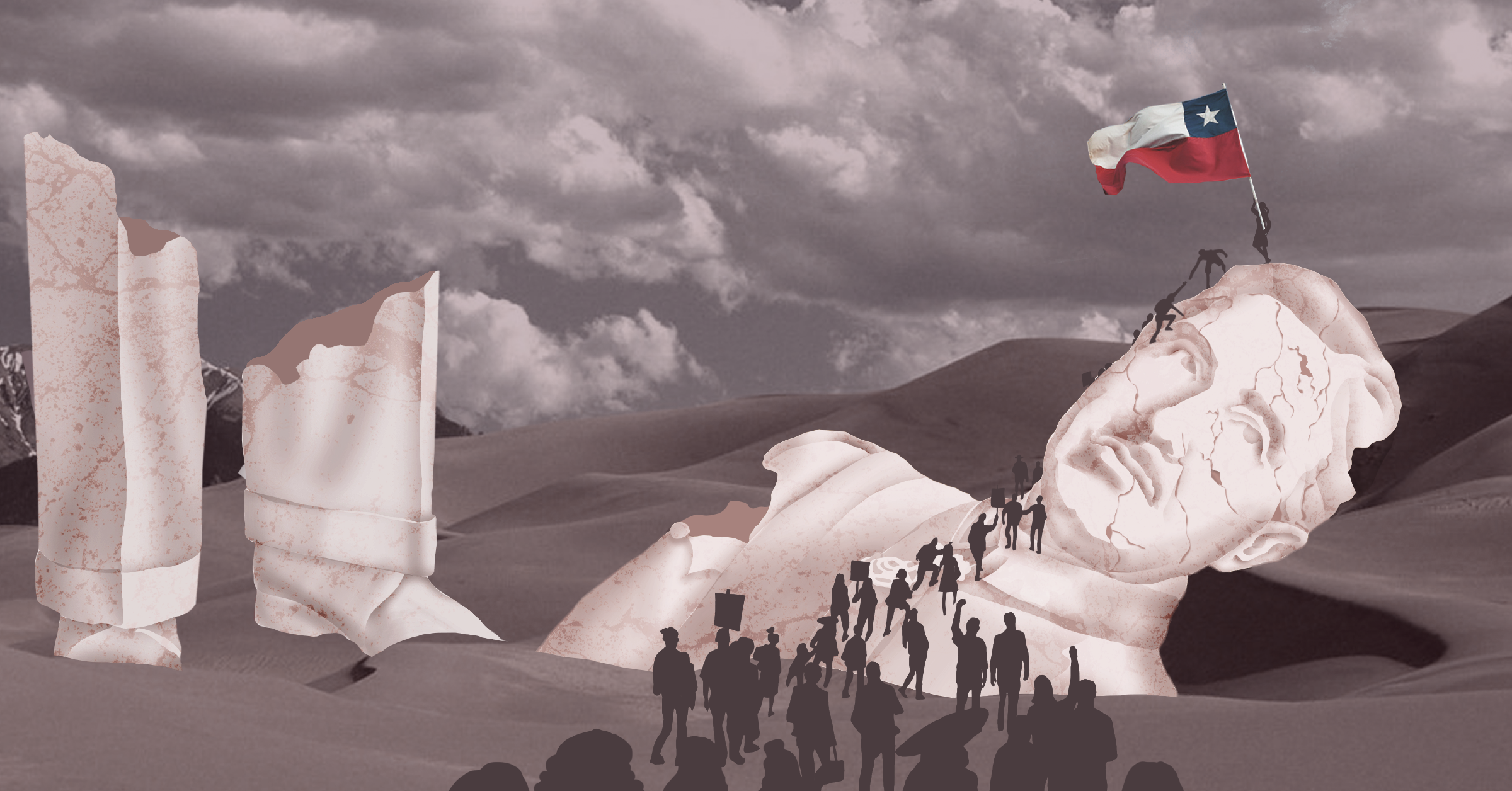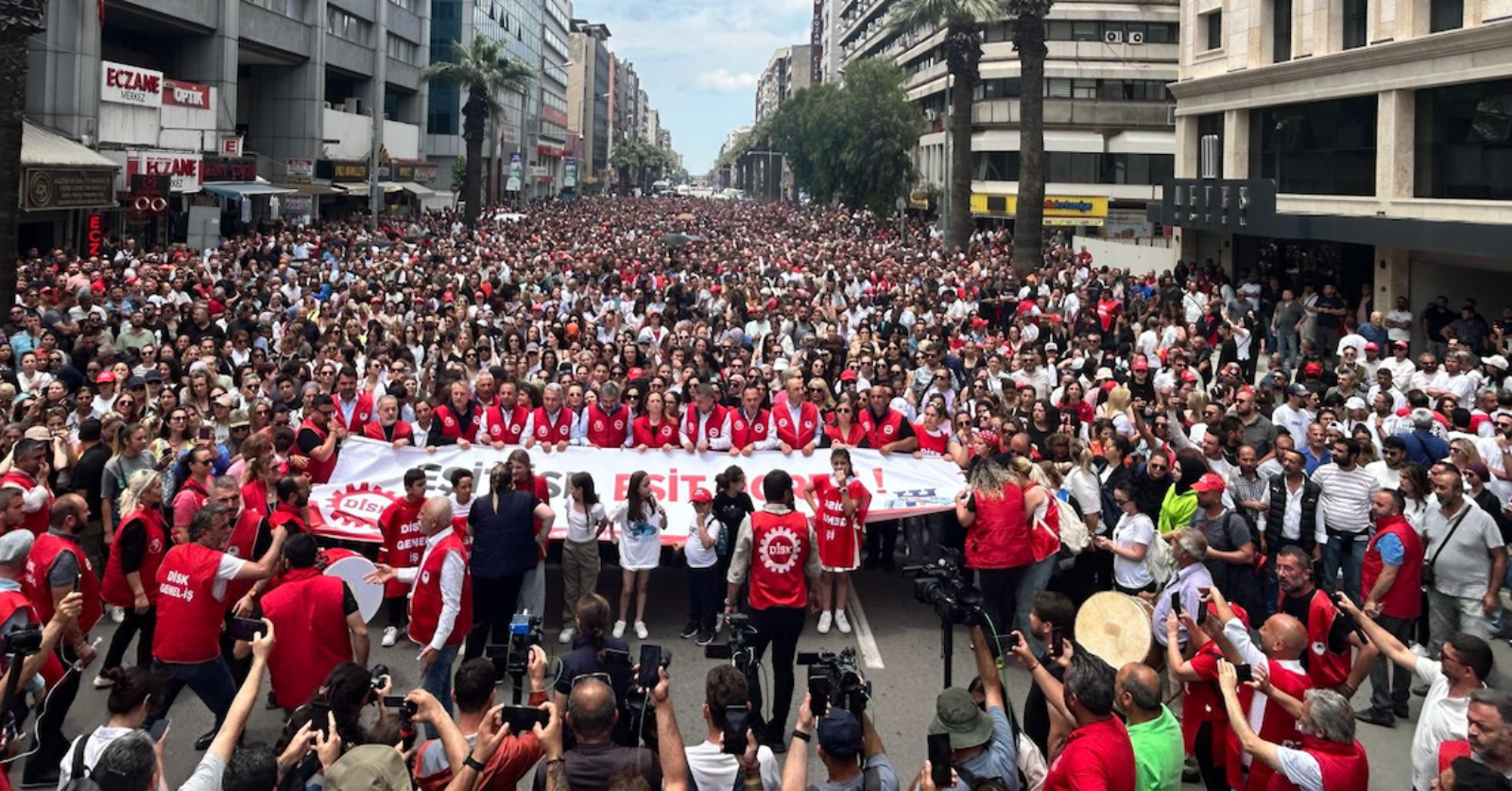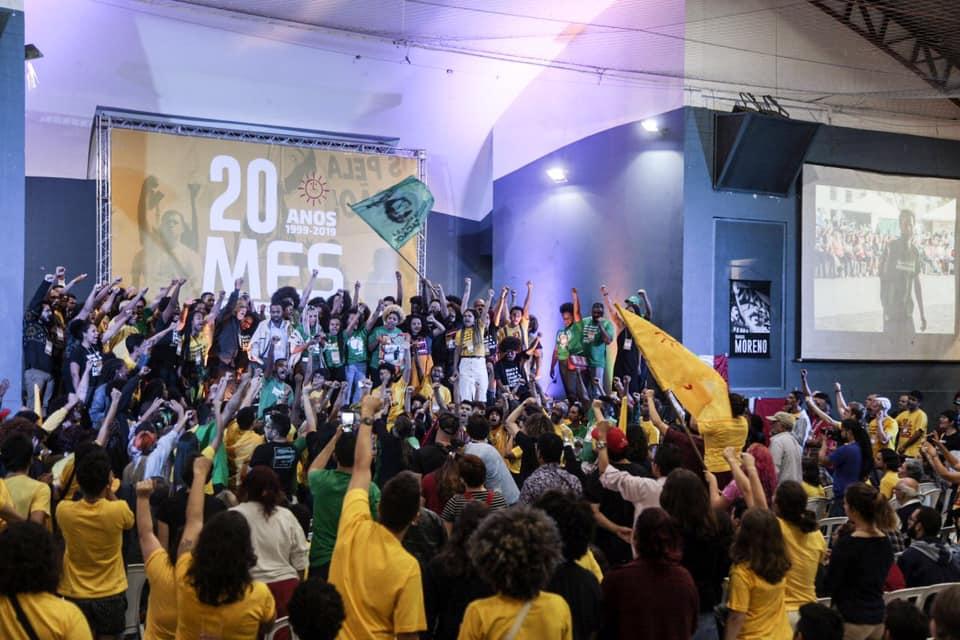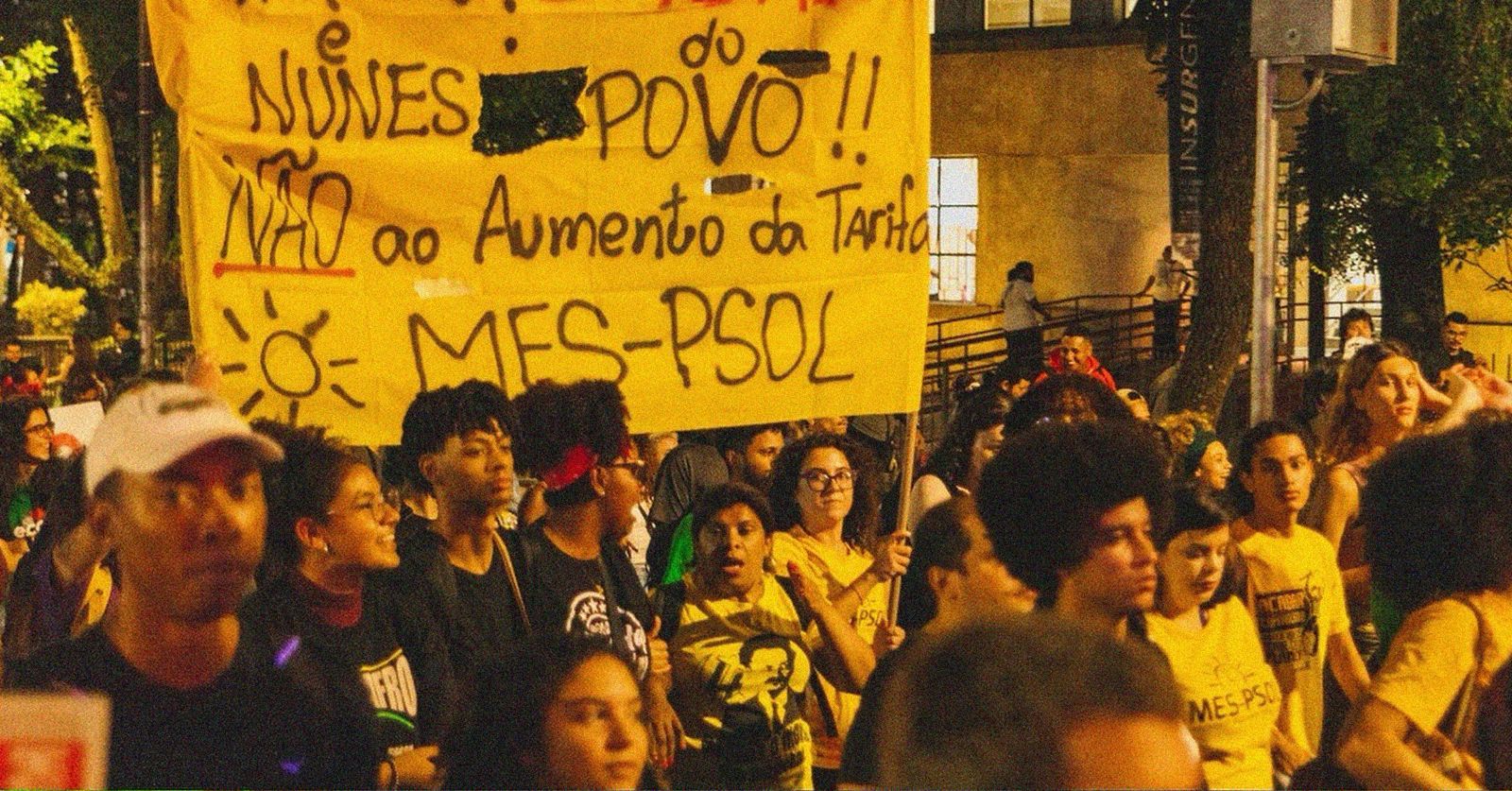The scene last night as Chileans poured into the streets of major metropolitan areas, particularly in Santiago and Valparaíso, was reminiscent of the high point of the 2019 social uprising when millions of Chileans — especially young people and the working class — filled the main streets of Santiago for miles.
The celebration stretched into the early morning as Chileans demonstrated an outpouring of support for the election of Gabriel Boric — a 35-year-old former student union leader and left-wing deputy from the extreme southern Magallanes region — to Chile’s presidency.
From Social Uprising to the Presidency
In October 2019, Chile awakened. What started as a protest against a 30 peso increase (about 4¢ US) in Metro fares in Santiago expanded into a wholesale mass movement across Chile against the excesses of neoliberalism.
Since then, the key question for the future of Chile has been how best to consolidate the political power built by the massive mobilizations.
At their height, Gabriel Boric, a deputy from the recently formed Convergencia Social party, a member of the broader, new left coalition Frente Amplio, brokered a pact with the ruling right-wing coalition for a referendum on replacing Chile’s Pinochet-era constitution.
With this, Boric and Frente Amplio entered the path to legitimation of the uprising’s political program through political institutions that are both implicitly and explicitly biased against exactly the social transformation called for by the protests.
This legitimacy has been won by passing through a series of hurdles, starting with the referendum, through the election of constituent assembly representatives, and now the election of Boric. Boric will be the president who shepherds Chile through the transition to a new constitution and, if the hopes of Frente Amplio and the new Chilean left are borne out, to a post-neoliberal Chile.
The first hurdle was the referendum itself. Last fall’s vote was an overwhelming victory for the “Approve” camp — that is, those seeking to replace the 1980 constitution. It also affirmed that the constituent assembly to write the new constitution should be composed exclusively of delegates elected specifically to the assembly.
Then, in May 2021, elections for the constituent assembly resulted in strong majorities for the left, but the more resounding message was a deep distrust of existing political institutions. Overwhelmingly, independents were elected, candidates with no association to existing political organizations.
The Ruling Class Strikes Back
The current, Pinochet-era constitution essentially enshrines the dominance of the capitalist class in the Chilean political system, and that class is cognizant of the real threat that a constitutional overhaul poses to its continued political dominance.
The economic elite were unable to mount an effective campaign against the constitutional referendum and the constituent assembly elections, but in the choice of who will shepherd this process to fruition, they have been much more successful.
Right-wing Victories in the First Round
Coming out of the left presidential primaries, Boric was the clear favorite over a divided field to his right, otherwise led by right- to center-right candidate Sebastian Sichel. The presidential contest quickly became a proxy battle for the outcome of the constitutional process.
As the first-round vote in November approached, however, far-right candidate José Antonio Kast, a congressional back-bencher, consolidated a lead as a law-and-order and anti-immigrant candidate, beating back Sichel to a measly 12.79%. Kast won 28% in the first round versus 26% for Boric.
Kast’s rise wasn’t the only surprise of the first-round vote. The large showing for dark horse center-right candidate Franco Parisi, who took third place, made him a seeming kingmaker for the second round.
Even more than Kast or Boric, Parisi embodies important elements of the political moment in Chile. Parisi’s campaign was run 100% virtually from Alabama and without his stepping foot in Chile, because of his skipping out on decades of child support payments. A consummate opportunist, Parisi also embezzled thousands of dollars in campaign funds.
But his campaign was remarkable, mounting a 24/7 online media apparatus with his podcast at the nucleus. Parisi’s appeal was exactly that the kind of campaign he ran was far from traditional, coming from a newly formed political party that engaged supporters in novel ways.
Middle-class Anxieties
In the second round, Boric moderated his politics and his personal brand significantly. He trimmed his beard, appeared in campaign ads donning more conservative attire, and on the night of the first-round vote, focused much of his campaign speech on the perceived strengths of Kast’s and Parisi’s anti-migrant and public safety platforms.
But it’s no coincidence that Kast’s, and to some extent Parisi’s, political program corresponded exactly to the middle-class anxieties about ongoing social mobilizations: anxieties about lawlessness and anarchy reigning on the streets of Santiago, about heightened conflict in the southern, traditional indigenous Mapuche territory (who have, since the end of the 19th century, mounted an occasionally violent resistance to Chilean landowners which is currently flaring up in tandem with the social uprising), and about immigrants to Chile importing narcotrafficking and other social ills. In response to a militant and broad-based feminist movement emerging from the 2019 uprising, Kast and his political allies have even questioned the suitability of women to participate in politics at all.
These anxieties are effective for mobilizing a certain right-wing base that is able to extend into the middle class and even reportedly among working-class men, precisely because the continued state of crisis is wearing thin on certain sectors in Chile.
Who Voted for Boric?
The mass mobilizations that started in October 2019 have not since ceased, and the protest movement in the streets is ongoing.
But in the first-round results, broad support for the anti-neoliberal social uprising and the constitutional convention did not translate to support for Boric, the ostensible pro-uprising, pro-constitutional convention candidate.
Thankfully, last night’s results showed a reversal, with Boric taking 56% to Kast’s 44%.
In the second-round vote, the Boric campaign was able to significantly improve its vote in three key constituencies.
Women
Boric was overwhelming supported by women in the first round, and only increased in the second, with Kast threatening to eliminate the Ministry of Women and restrict abortion rights, and with some political allies making statements against women’s suffrage. The feminist movement in Chile was a key player in the 2019 uprising.
Young People
Unlike in the first round, turnout of young people was massive for the second round. Young Chileans started the social uprising in 2019 when teenaged students launched a fare evasion campaign, and with this election, the future of Chile clearly belongs to them.
Working-class Chileans
Working-class neighborhoods in Santiago, and traditional working-class regions like the far north mining regions Antofagasta and Coquimbo, Coronel and Lota in central Chile, and in Boric’s home district of Magallanes in the extreme south, turned out for Boric in much higher numbers than in November.
Ending Neoliberalism in Chile
Boric and his allies have repeatedly called for Chile to end neoliberalism, and there is a clear anti-neoliberal throughline from the 2019 social uprising through the presidential election.
Boric’s program, in essence, is to make Chile into a social democracy, starting by purging the most egregious elements of neoliberalism. In particular, he seeks to put an end to the privatized pension system and water infrastructure, and other neoliberal changes.
In his speech celebrating his victory in the left primary in July of this year, Boric summed up the thrust of this program: “If Chile was the cradle of neoliberalism, it will also be its grave.”
If Boric and his allies in Chile’s new left are serious about ending neoliberalism in Chile, they face critical challenges. Specifically, what elements of neoliberalism can be dismantled without resistance from capital? What strategies will capitalist actors implement next to avoid losing political power?
Furthermore, the 2019 social uprising, the constitutional referendum vote, and the presidential vote have demonstrated that an anti-neoliberal program enjoys broad support in Chile. But has the left been able to foster the deep consciousness and organization necessary for a prolonged fight?
On this last front, the prospects look more difficult. While the constitutional referendum, the constituent assembly elections, and Boric’s campaign have been able to mobilize working-class Chileans to the polls, they have not been able to foster an increased recognition of the power of the working class as a class to intervene politically.
By defeating Kast, Boric holds the door open for social transformation. If Chile’s awakening is to lead to real change and not end up diverted into compromises with capital or toward moderation, to draw in middle-class constituents anxious about ongoing crisis, its protest movement must reawaken and deepen its organizing.
Boric’s victory is a historic step, but the people of Chile can not demobilize now. Instead, they will have to cohere into a political force capable of contending with the challenges the anti-neoliberal program — advanced through both protests and votes — will face.




